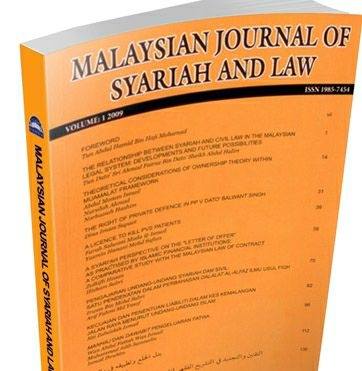PUNISHMENT FOR POLYGAMY DOER IN THE PERSPECTIVE OF ISLAMIC LAW “FIQH†IN INDONESIA
DOI:
https://doi.org/10.33102/mjsl.vol5no2.62Keywords:
Polygamy, Civil Servant (PNS), Fiqh, Indonesian Regulation/Constitution (UU) No. 1 in 1974Abstract
Indonesian government has been progressively attempting to minimalize the polygamy. This is proved by the issuance of regulation/constitution (UU) No. 1 in 1974. Then, specific regulation (PP) is also issued for the civil servants No. 10 in 1983 and has been amended into No. 45 in 1990 dealing with the permission for marriage and divorce. Both UU and PP stipulate certain of punishments in doing polygamy. This research is aimed to find out (1). What punishments are given for civil servants in terms of UU No. 1 Tahun 1974. (2) How is the punishments given for civil servants in terms of Islamic Marriage Law/fiqh. Hence, the main data used is UU No. 1 in 1974 for general reference. Meanwhile, PP No. 10 in 1983 which was amended into PP No. 45 in 1990 is also applicable to civil servants. Second data is Al-Qur’an, Hadist, fiqh books and compilation of Islamic Law. Among the findings of this research are; firstly, civil servants who break the polygamy law could be fined amount of seven thousand Rupiah (IDR). If his new marriage is no consent from applied rules, he could be punished by the four alternatives: (1) lowering his rank to lower level; (2) freeing from his current position; (3) being fired from the current government civil servant; (4) ceasing his status as civil servant disrespectfully. Female civil servant whose status is as the second/third/forth wife would be ceased disrespectfully from civil servant. Secondly, in Islamic law or fiqh, polygamy is obligated to fulfill certain of requirements. In fiqh, polygamy is strictly forbidden. It refers to Quranic verse: Ø°ÙŽÙ„ÙÙƒÙŽ أَدْنَى أَلا تَعÙولÙوا. This is viewed as ‘azimah, meanwhile it is allowed to do if he could give justices to his wives as so called as rukhshah. Regulation on polygamy is referring to Al-Qur’an which allows man to marry more than one wife. In another reference, Indonesia government through marriage regulation is forbidden in terms of its negative impacts (mafsadah) are bigger than positive one (mashlahah).
Downloads

Downloads
Published
Issue
Section
License
Copyright (c) 2017 Nurcahaya Nurcahaya, Akbarizan Akbarizan, Muhammad Absor, Afdhol Rinaldi

This work is licensed under a Creative Commons Attribution-NonCommercial 4.0 International License.














































